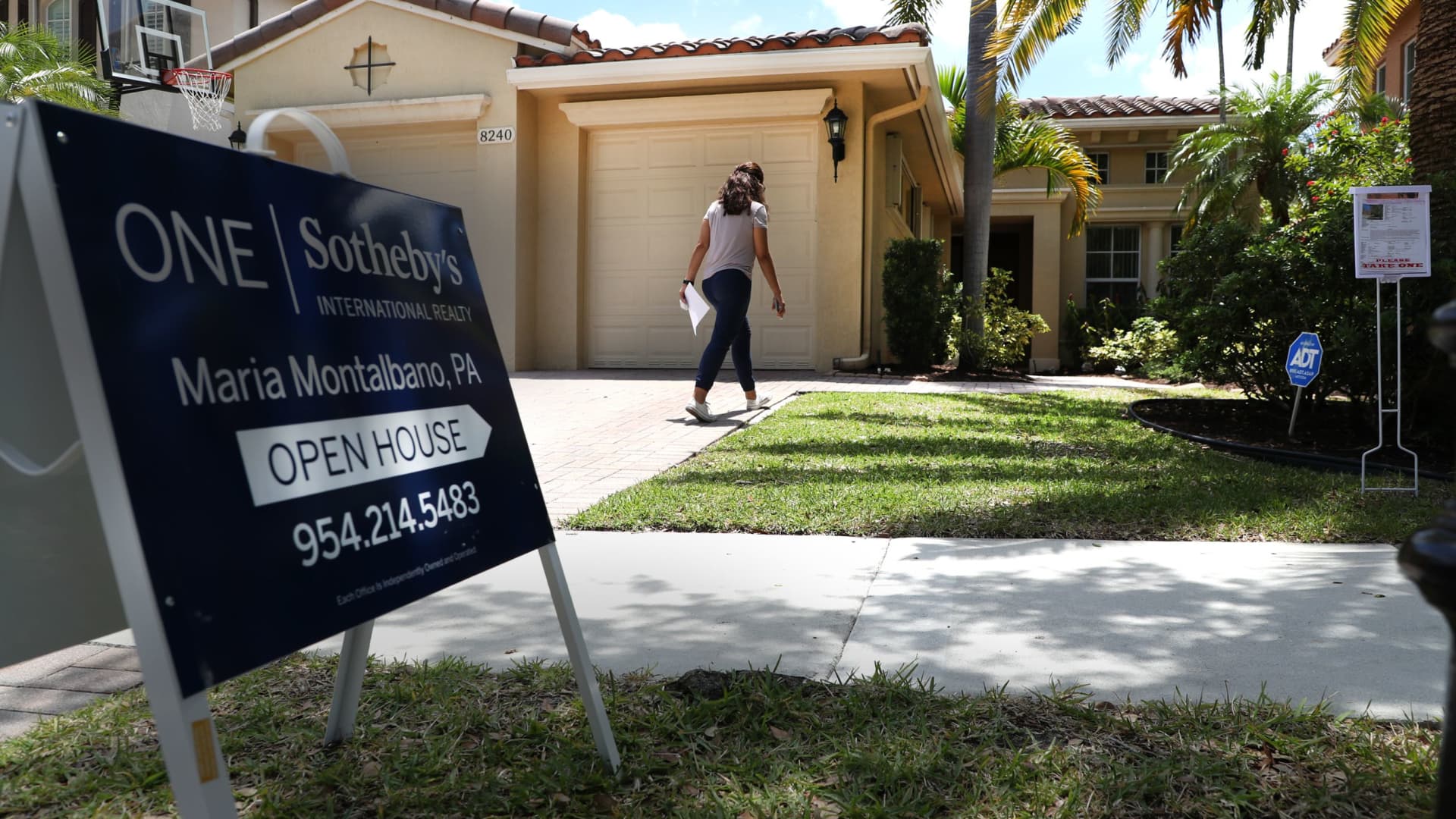Home price declines may be over, S&P Case-Shiller says
2 min read
A potential buyer walks in to view a home for sale during an open house in Parkland, Florida on May 25, 2021.
Carline Jean | Tribune News Service | Getty Images
Steep competition in the housing market and low supply are heating up home prices again.
Nationally, home prices in March were 0.7% higher than March 2022, S&P CoreLogic Case-Shiller Indices said Tuesday.
“The modest increases in home prices we saw a month ago accelerated in March 2023,” said Craig J. Lazzara, managing director at S&P DJI, in a release. “Two months of increasing prices do not a definitive recovery make, but March’s results suggest that the decline in home prices that began in June 2022 may have come to an end.”
The 10-city composite, which includes the Los Angeles and New York metropolitan areas, dropped 0.8% year over year, compared with a 0.5% increase in the previous month. The 20-city composite, which includes Dallas-Fort Worth and the Detroit area, fell 1.1%, down from a 0.4% annual gain in the previous month.
Home prices are rising again month to month, however. After seasonal adjustment, prices increased nationally 0.4% in March compared with February. The 10-city composite gained 0.6% and 20-city composite rose 0.5%.
Lazzara also noted that the price acceleration nationally was also apparent at a more granular level. Before seasonal adjustment, prices rose in all 20 cities in March (versus in 12 in February), and in all 20 price gains accelerated between February and March.
Miami, Tampa, Florida, and Charlotte, North Carolina, saw the highest year-over-year gains among the 20 cities in March. Charlotte replaced Atlanta in third place. Compared with a year ago, 19 of 20 cities reported lower prices with only Chicago showing an increase at 0.4%.
“One of the most interesting aspects of our report continues to lie in its stark regional differences,” added Lazzara. “The farther west we look, the weaker prices are, with Seattle (-12.4%) now leading San Francisco (-11.2%) at the bottom of the league table. It’s unsurprising that the Southeast (+5.4%) remains the country’s strongest region, while the West (-6.2%) remains the weakest.”







